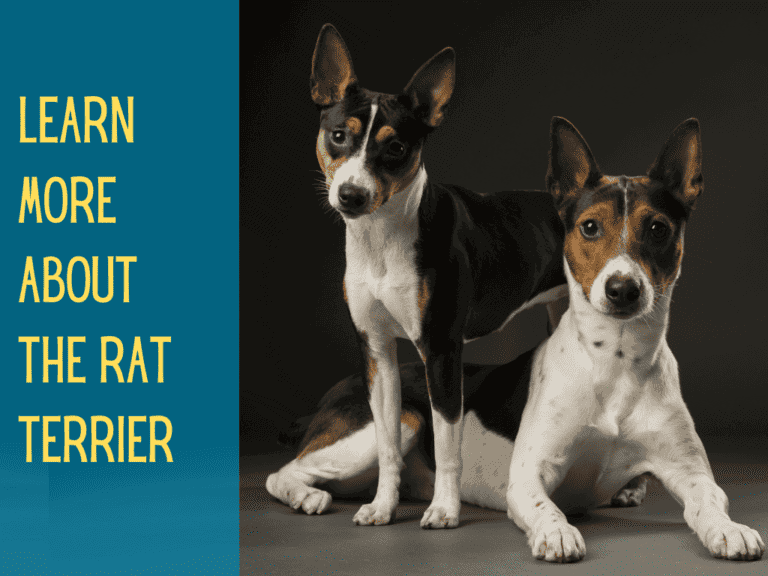Bernese Mountain Dog: 2024 Breed Information & Tips

Meraki Dogs may earn a small commission when you buy through links on this site at no cost to you. See our disclaimer here.
Have you ever come across the majestic Bernese Mountain Dog? Known not just for their stunning appearance but also for their gentle nature and incredible work ethic, there’s a depth to Berners that many aren’t aware of. Imagine having a loyal companion with a rich history, fascinating traits, and unique needs. Understanding their background, health considerations, and care requirements can create a lasting bond. Before making the decision to bring this wonderful breed into your life, dive in to uncover all there is to know about the Bernese Mountain Dog.
At a Glance
Life Expectancy: 7 – 10 Years
Height at the Withers: 25″ – 27.5″ (male), 23″ – 26″ (female)
Weight: 80 – 115 lbs (male), 70 – 95 lbs (female)
Shedding: Heavy Shedders
Grooming Needs: Moderate
Overview of the Bernese Mountain Dog
The Bernese Mountain Dog is a large working breed that stands out as a magnificent and formidable breed, adept at various tasks. Beyond their captivating appearance and large size, they showcase immense versatility. Their sharp intellect and eagerness to cooperate make them adept at competitions, spanning conformation, obedience, rally, agility, tracking, herding, carting, and scent work.
Their balanced disposition and endearing character also position them as ideal therapy dogs. So, the Bernese Mountain Dog is a prime choice whether you’re seeking an energetic sidekick or a potential show-stopper.
Bernese Mountain Dog Breed History
Tracing back to Switzerland, the Bernese Mountain Dog emerges as a durable, solid working dog breed. These Swiss mountain canines had (and still have) roles of pulling carts, accompanying cattle to graze, and serving as a devoted companion and watchdog for the farmer. The reason is that Swiss farmers typically manage a modest number of cows. Consequently, the Bernese Mountain Dogs found their niche in aiding with smaller chores, notably cart-pulling.

Appearance
The Bernese Mountain Dog exudes majesty with its eye-catching tri-colored and subtly wavy coat. This large breed has a noticeable size difference between sexes: males tip the scales between 80 and 115 pounds, while their female counterparts weigh between 70 and 95 pounds.
Their luxurious double coat doesn’t just add to their aesthetic appeal. This thick layer serves a functional purpose, offering robust protection against harsh, cold weather. The dense nature of their coat makes them especially resilient to snowy and icy conditions. Consequently, they thrive in colder climates and are perfectly suited for various winter outdoor activities, from snowy hikes to playful frolics in a winter wonderland. Their inherent tolerance to cold makes them invaluable partners for those who relish outdoor adventures regardless of the season.
Bernese Mountain Dog Temperament
According to the official breed standard, the Bernese Mountain Dog is expected to exhibit traits of self-assurance, vigilance, and a pronounced amiable disposition. Though classified as a working breed, this good-natured and affectionate breed often leans towards gentleness, approachability, and tolerance, making them an excellent family dog. A characteristic wariness is noticeable with strangers, which usually subsides as they get to know the individual.
Ensuring they have ample companionship and physical and cognitive engagement can bring out the best in Berners. In such nurturing environments, they tend to be subdued, showing a marked preference for simply being in the company of their loved ones. Left alone, they’re more prone to longing than to seeking solitude.
Training and Exercise Needs
Bernese Mountain Dogs, in all their splendor, have a determined nature and thrive when given focused attention and a structured environment. Easy to train, it’s imperative for all Berner owners to initiate basic training; this journey typically begins with early socialization and puppy training, eventually evolving into more advanced obedience sessions as the dog matures.
To keep them physically active and mentally stimulated, a daily regimen of at least 30 minutes of robust exercise is recommended, though some might require a bit more based on their unique needs. With the right amount of care and dedication, Bernese Mountain Dogs can seamlessly integrate into homes, enriching them with their presence.
Groom Requirements
The Bernese Mountain Dog, characterized by its double coat, tends to shed considerably. However, their upkeep remains relatively straightforward. It’s important to note that their coat should not be shaved. Any trimming should be limited to tidying the hair around their feet and ears.
Regular baths and consistent brushing sessions are essential to ensure they present a well-groomed appearance, especially since they experience seasonal shedding. A weekly brush-down is advisable to maintain the coat’s integrity and cleanliness and prevent the accumulation of dirt.
When it’s time to dry your Bernese Mountain Dog post-bath or brush session, either let the coat naturally air dry or utilize a high-velocity dog-specific dryer to achieve that fresh, voluminous appearance. Refrain from using human hairdryers, as they can inadvertently cause burns or damage to the dog’s skin and coat.
Here’s a list of recommended grooming tools for Bernese Mountain Dogs:
– Slicker/Pin brush
– Dog comb with medium-spaced metal tines
– Scissors (trimming the hair around the feet)
– Undercoat Rake (ideal for extracting the dead undercoat)
Dental Hygiene
Regular tooth brushing ensures optimal dental hygiene for the Bernese Mountain Dog. Dental chews or raw beef marrow bones can also be natural tooth-cleaning agents. However, when using marrow bones, always supervise your Berner to ensure safety and prevent any potential hazards.
How Much Does a Bernese Mountain Dog Cost?
If you’re contemplating welcoming a Bernese Mountain Dog into your family, it’s crucial to assess the holistic financial commitment involved, encompassing both the initial purchase and lifelong upkeep of the dog. While the initial acquisition price of a Bernese Mountain Dog typically falls between $2000 and $3000 or even higher, this is just the tip of the iceberg.
The long-term expenses encompass routine veterinary care, consistent food and treats, training sessions and requisite materials, boarding expenses when you’re away, and essential equipment. This equipment can include items like crates and toys and potential modifications to your home or yard for the dog’s safety and comfort. All these costs accumulate over time and should be factored in as you consider the long-term commitment to a Bernese Mountain Dog.

Bernese Mountain Dogs Health
Bernese Mountain Dog Life Span
The enchanting Bernese Mountain Dogs, despite their loyalty and grand stature, unfortunately, have a relatively short average lifespan that typically spans between 7 to 10 years. Some, though, do live beyond a decade.
Health Concerns
The Bernese Mountain Dog has a predisposition to a range of health complications. These include but are not limited to, cancer, hip dysplasia, elbow dysplasia, orthopedic issues, bloat, eye conditions, autoimmune disorders, hypothyroidism, and degenerative myelopathy (DM).
On a brighter note, the Bernese Mountain Dog Club of America (BMDCA) is dedicated to addressing these health challenges. Committed breeders, in line with the club’s emphasis on health, administer necessary health screenings to their breeding dogs. This proactive approach aims to enhance the breed’s overall health and lifespan. As a prospective owner, it’s advisable to inquire and obtain all pertinent details regarding health tests to ascertain the health of the puppy’s lineage and genetic heritage before finalizing the purchase.
Recommended Health Testing
To uphold the well-being and enhance the quality of life of the Bernese Mountain Dog, the BMDCA stipulates several health assessments and certifications that breeding dogs, whether dam or sire, should undergo prior to breeding. The endorsed screenings include:
Through these rigorous tests, responsible breeders play a pivotal role in fostering a healthier Bernese Mountain Dog population, ensuring that these majestic dogs continue to be a source of happiness for families and breed aficionados alike.
Getting a Bernese Mountain Dog from a Dog Breeder or Rescue

Responsible Breeders
When in the market for a Bernese Mountain Dog puppy, it’s imperative to steer clear of pet stores, puppy mills, and backyard breeders. The distinction of responsible breeders lies in their adherence to high standards: they secure health clearances for their breeding dogs, ensure pedigrees with titled dogs are registered, and staunchly uphold the temperament and physical attributes of the Bernese Mountain Dog as delineated by breed standards.
Such breeders aren’t merely traders but genuine enthusiasts with a profound understanding of the Bernese Mountain Dog. They invest considerable time and resources to yield puppies that align with the breed’s ideal specifications, underscoring their commitment to best breeding practices. Their dedication is not transient. From your puppy’s early days to its mature years, these breeders remain a consistent pillar of support, ensuring you have the guidance and assistance you might need throughout your dog’s life.
Bernese Mountain Dog Rescue
For those contemplating the adoption of a Bernese Mountain Dog, the BMDCA offers invaluable resources. Their website is a gateway to approved rescue organizations spread across North America, streamlining the starting point of your quest. Further, the comfort of knowing that these organizations operate under the watchful eye of the BMDCA ensures trustworthiness. Whether you’re in the preliminary phase of exploring the breed or on the cusp of welcoming a new furry companion, initiating your journey through a BMDCA-endorsed rescue is a commendable approach.
Books About The Bernese Mountain Dog and Basic Dog Care
References
- Bernese Mountain Dog Club of America, https://www.bmdca.org/
- American Kennel Club, https://www.akc.org/dog-breeds/bernese-mountain-dog/
Meraki Dogs only uses high-quality sources to support the facts within our articles.




